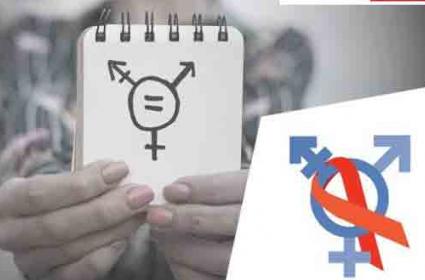Transgender Community Bear the Brunt of Deeprooted Discrimination

The curiosity of knowing what’s below the belt of a transgender person and lack of awareness of trans health needs makes the situation more complex, resulting in judgemental attitudes by the society.
India has a sizeable transgender population. Our country is yet to give this large section of the population their due and truly appreciate their contribution. Our society has not been just in providing transgender people employment opportunities, and access to healthcare. Additionally, they have to contend with deep-rooted discrimination.
In a conversation with Reshmi AR, Simran Bharucha, Director - Transgender Health, Project ACCELERATE, discusses the change that her organization is trying to bring in this regard.
- Risk assessment is key to managing the HIV epidemic. What are the steps to be taken to ensure healthy living?
Access to basic healthcare is a right of every citizen irrespective of gender or class. However, many marginalised communities face stigma and discrimination while accessing health services which makes them vulnerable towards unhealthy living. It’s a proven fact globally that when communities are empowered and supported to take their own decisions, the overall impact of faith and trust increases within the community, resulting in healthy living and wellbeing. The current standard in India is to deliver HIV services through a TI approach via NGOs/CBOs for HIV prevention, including services for transgender women/hijra (TGW/H). However, as TGW/H have broader healthcare needs, beyond HIV, offering comprehensive services only increase access and adherence to HIV/STI prevention services, and increases overall health and wellbeing for transgender individuals. In this context, Mitr clinics offer HIV and non-HIV services such as gender-affirming services, socio-legal support, noncommunicable diseases and HIV/STI screening, testing and care. Our key objective is of risk assessment, to help identify at-risk transgender individuals and link them to transgender specific non-HIV services along with HIV services. Accessing the risk assessment services is key for at-risk community members, to lead a healthy lifestyle and join the fight against the HIV epidemic.
- Access to healthcare services is often hindered by societal taboos. How are the Mitr clinics supporting the transgender community?
Societal stigmas and lack of awareness are key causes of hindrance for the transgender community while accessing healthcare, both in private and public facilities. The curiosity of knowing what’s below the belt of a transgender person and lack of awareness of trans health needs makes the situation more complex, resulting in judgemental attitudes by the society. Mitr clinics, led by Project ACCELERATE, are community led clinics; these clinics are governed by the transgender community, for the transgender community. The staff of the Mitr clinics are well qualified and most of them belong from the community. The rest of the staff are allies of the community. Mitr clinic also actively works towards sensitization and awareness through meets and identifies and works with medical institutions (Private or semi-Private) for referral and linkages services to create a safe space.
- Has the ongoing third wave of the pandemic impacted operations of the Mitr clinics? Do the clinics provide support for covid-relief to the transgender community?
Yes, it has impacted the operations at the ground level. However, as healthcare workers, we ensure that the health of our clients are most important to us and provide medical aid to those who are in need of support. Due to restrictions of mobility in major parts of this country, Mitr clinic initiated a toll-free number, where clients can connect telephonically or virtually to discuss their medical needs with peer counsellors. We are also providing lifesaving medicines to our clients through door-to-door services, along with COVID relief support such as dry rations and nutrition support to the community. This support is made possible through various generous donations gathered via demand generation.
- What are key interventions that people living with HIV should follow during the pandemic to ensure health and wellbeing?
As the saying goes ‘health is wealth’, and this stands true whether one is living with HIV or not, everyone should take proper measures of safety from the COVID infection. However, individuals living with HIV should ensure that whether infected with COVID or not, they must not stop their lifesaving ARV medication. They should try staying away from crowds or gatherings, as COVID is highly transmittable and should also avoid visiting health facilities, or only access them during essential health service requirements. The most preferred way of course, is avoiding any contact wherever possible; healthcare providers and patients should use tele-health options such as phone calls or other virtual options for routine or non-urgent consultations (including HIV adherence counselling), with careful consideration for client privacy and confidentiality. Similar options can also be considered in place of client support services, typically offered in the community, such as peer support groups and home visits.














